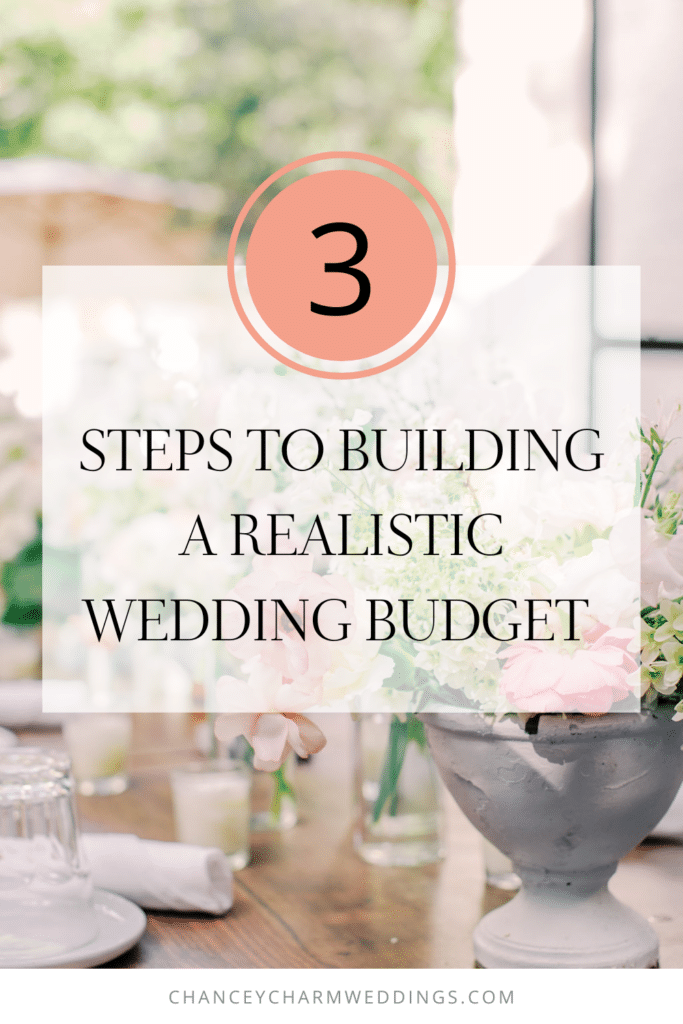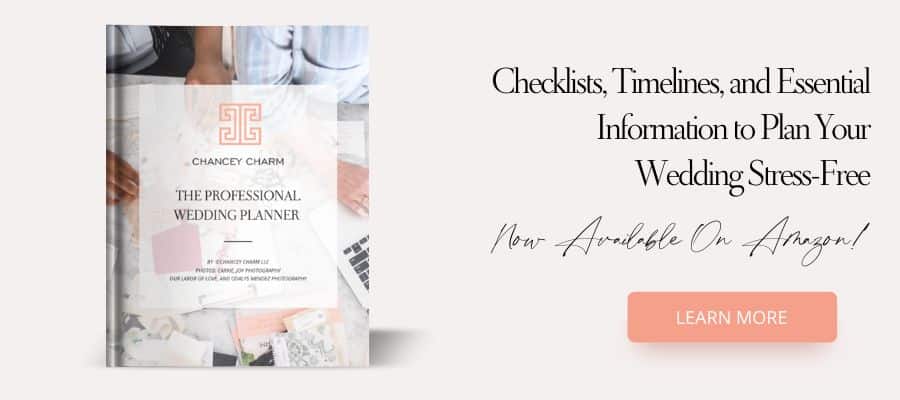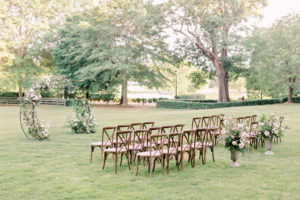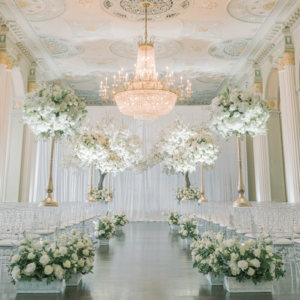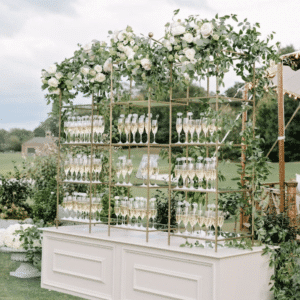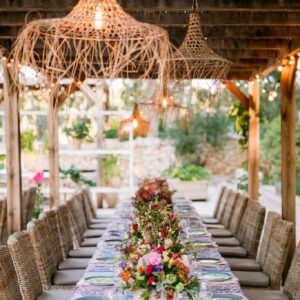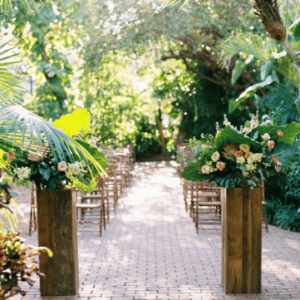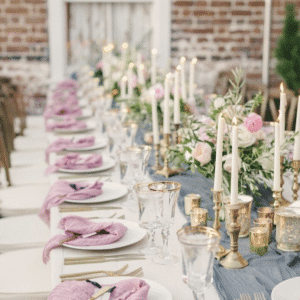Setting a realistic wedding budget is key when beginning to plan a wedding. From starting the conversations, to setting your priorities and looking at average costs in your area, we have put together 3 steps to follow that will help couples set, and stick to, a realistic wedding budget. Plus we include some pro tips from our lead planners that you won’t want to miss.
Happy Planning Friends!
STEP 1: Set A Realistic Budget & Guest Count
The first step in planning your wedding is to establish a realistic budget and guest count. Start by sitting down and having an open conversation with each set of parents. Make sure they know that you are not expecting any money from them, but that you need to have the money talk to set an accurate budget.
Answer to following questions to establish your initial budget:
How much are you, as a couple, putting toward the wedding? _________________________
Are either sets of parents contributing? ______________ If so, how much?_______________
OUR INITIAL WEDDING BUDGET: $____________________________
WHAT OUR PRO SAYS:
If you and your family have never had the wedding contribution conversation, it is important to come to the table without expectations. I’d recommend sitting down with them – maybe over dinner if you’re local – but only make it part of the conversation, not the whole point for the conversation.
That way you can bring it up easily like, “Hey, you know [[FIANCE]] and I are starting to plan our wedding and we’re trying to get a clear picture of what we have to make our budget. We’re not expecting you guys to contribute anything, but if you were already planning to, let us know so we can factor that in.”
And then move on to other topics – I recommend having ideas of what this might be in the back of your mind to make the transition less awkward.
STEP 2: List Your "Non-Negotiables"
Next, you need to define your priorities. Listing any “non-negotiables” or elements of the wedding you are willing to splurge on is also an important part of the process. Having your heart set on a particular venue or vendor may mean you have to adjust your initial budget.
Rank each of the following categories to define your wedding priorities:
- Ceremony
- Flowers
- Overall Decor & Lighting
- Catering & Alcohol
- Music/Entertainment
- Photography
- Personal Appearance (Dress/Beauty/Accessories)
- Stationery
Based on these category ratings, list your top 3 priorities:
1. __________________________________________________________
2. __________________________________________________________
3. __________________________________________________________
WHAT OUR PRO SAYS:
Step 1: Figure out what parts of your budget are most and least important for you as a couple. Then base your budget around that.
Step 2: Once you have those things narrowed down, be realistic with what your limitations are for each of those vendors.
Step 3: Don’t overcommit. I think this is the most important part. Knowing your limits and boundaries is so important for budgeting. It can be easy to go over budget when each item is “just a little” over!
STEP 3: Build Your Budget According To Your Priorities
Taking your top priorities in mind, build your wedding budget according to average costs and taking the percentages to match your preferences. If your dream photographer is more than the average percentage then simply adjust one of your lower priorities to even everything out.
- 5.5% BRIDAL GOWN
- .5% BEAUTY
- 1% GROOM’S ATTIRE
- 3% PAPER GOODS
- 15% VENUE(S)
- 1% OFFICIANT
- 10% PHOTOGRAPHY
- 5% VIDEOGRAPHY
- 25% CATERING + ALCOHOL
- 1% CAKE/DESSERT
- 10% ENTERTAINMENT
- 9% FLORALS
- 1% GIFTS
- 3% TRANSPORTATION
- 5-10% WEDDING PLANNER
WHAT OUR PRO SAYS:
Making a budget can be hard for most couples because they haven’t been through this process before and likely don’t know what the average cost of vendors are. Consider hiring a planner to help you navigate through the budget and help you set realistic expectations because they will know the average cost for vendors in your area. Once you have your priorities, look at the additional areas and see what you have left to spend. If transportation in your area averages around $3k-$5k but you only have $2k allocated for that, talk to the transportation company to see how you can best utilize the vehicles to fit within your budget. They will likely give you options to see what would work best for you! Be careful when looking online at estimated wedding budgets because all wedding industries are different, try and look for budgets that recommend based on percentage of overall budget and not a set number!
